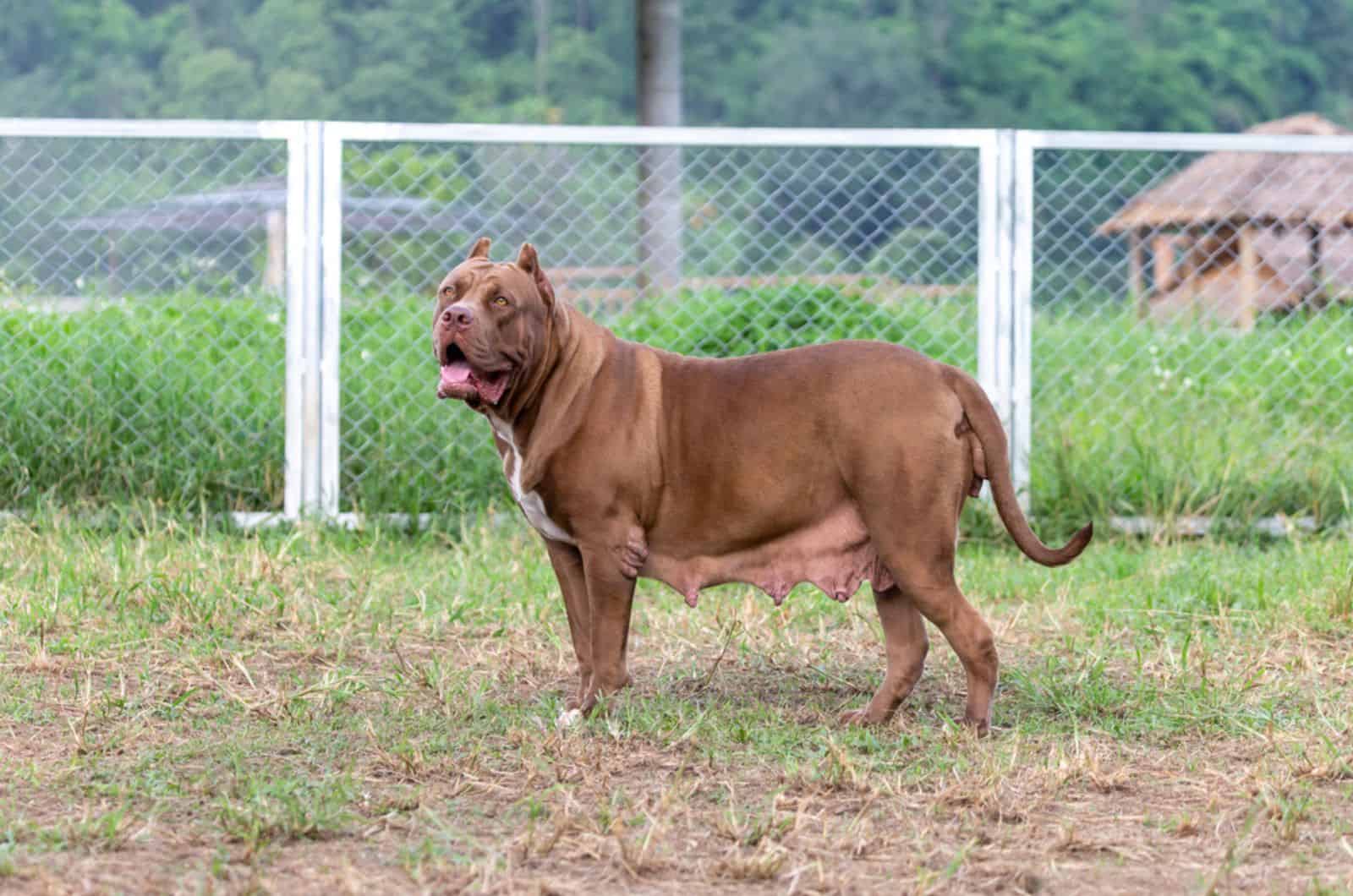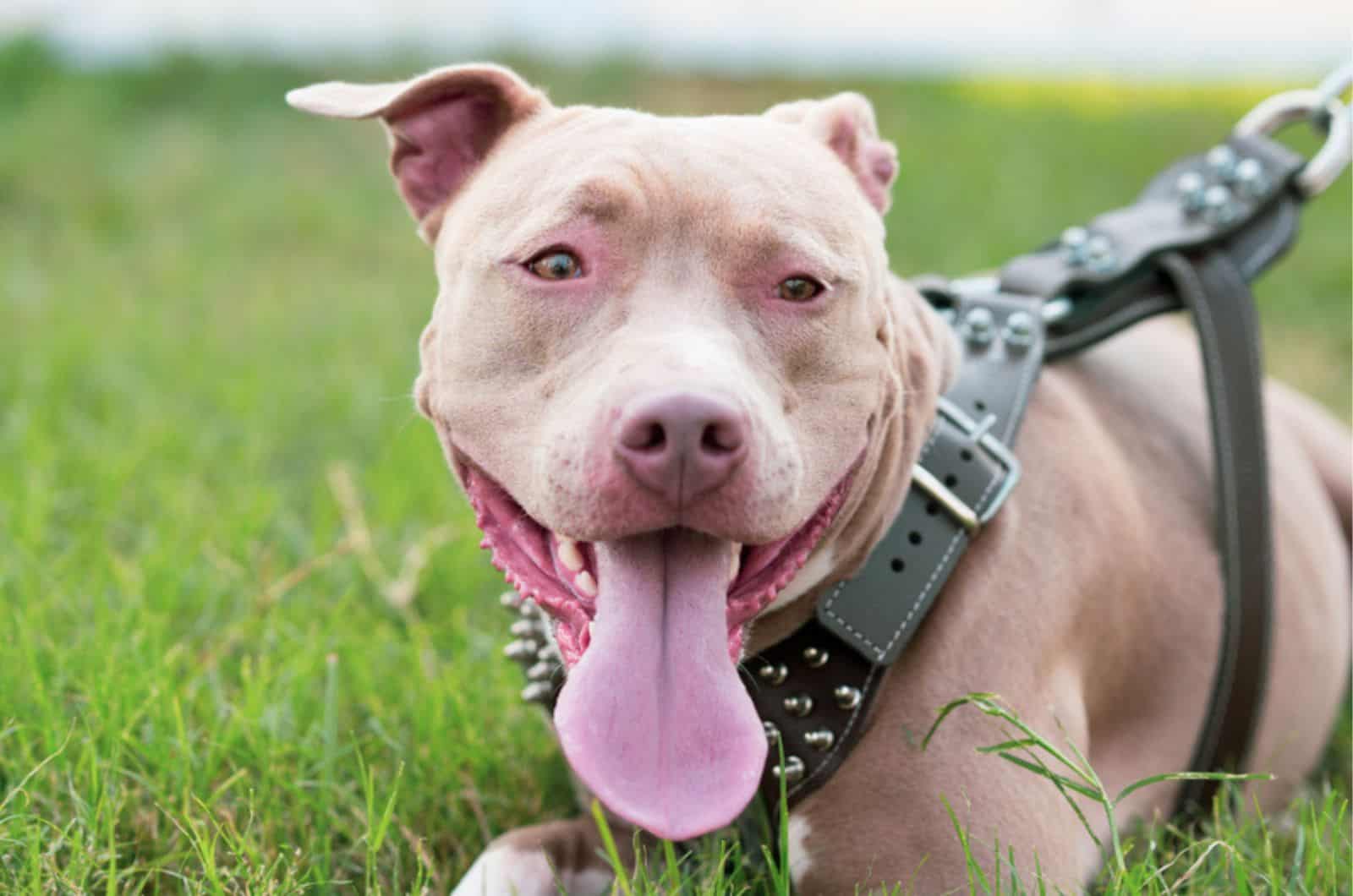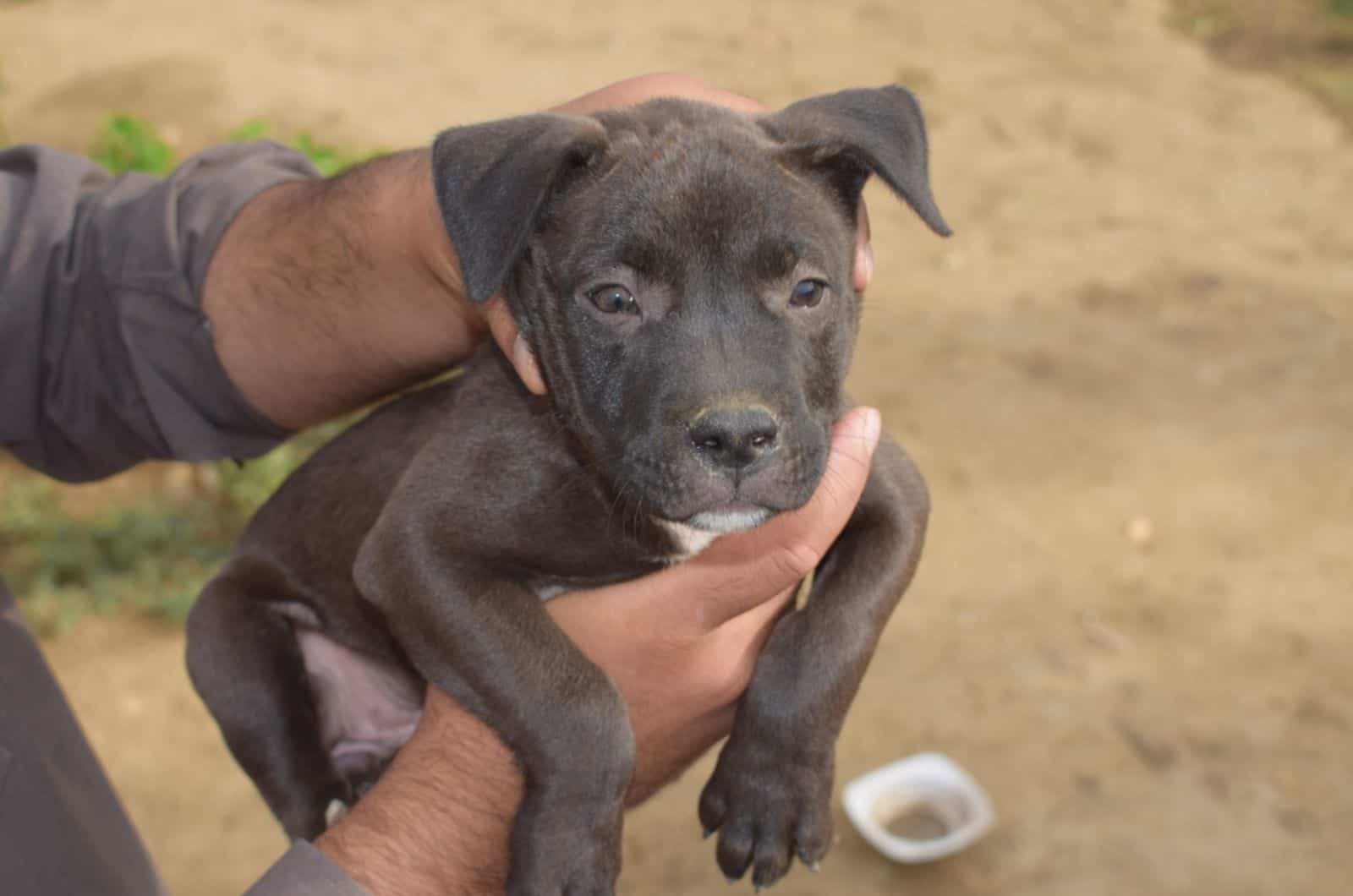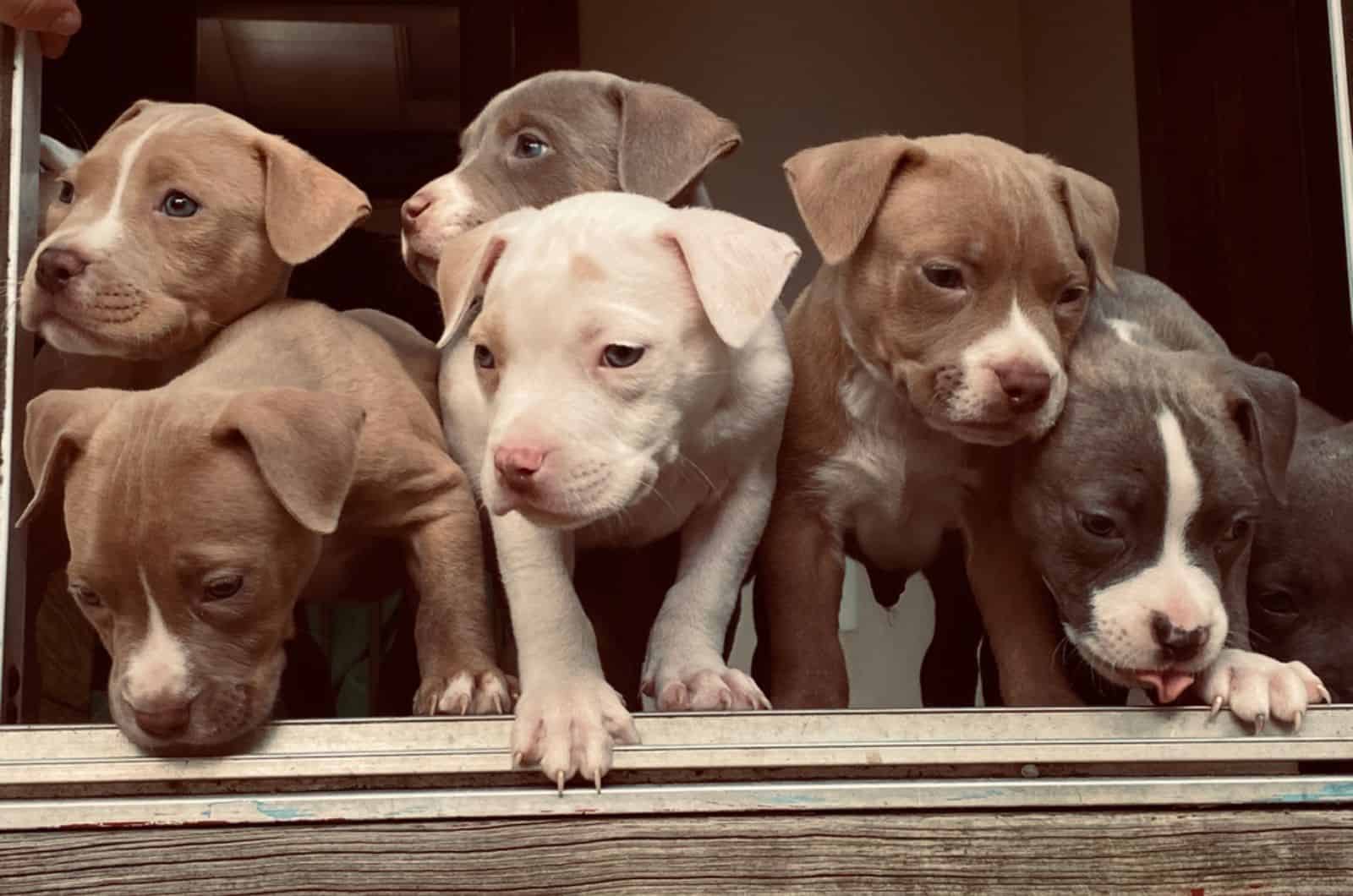A common sentiment is that Pitbull breeding should be heavily regulated to prevent the perpetuation of aggressive traits in the breed. What are your thoughts on this?
Whatever the case may be, there is no denying that there are irresponsible Pitbull breeders out there. However, that is not a generalization that should be used to describe all of them.
If you would like to try your hand at Pitbull breeding, but you’re not sure how to start, then this post might be for you.
In this quick guide, we try to outline all the parameters that you should stick by if you wish to conscientiously breed healthy, high-quality Pits.
Starting with legislation and moving on to more technical aspects of health testing and providing care, you should find this a very useful starting point.
How To Start Breeding Pitbulls

Pitbulls are a very popular breed, but they are also fairly controversial, particularly when it comes to their relationship with kids.
They are sometimes preceded by a bad reputation, but that is a stigma that isn’t always correct, and when it is, the blame should probably lie with unconscionable breeders.
So before you actually start breeding Pitbulls, you need to do your research. It starts with knowing all the pertinent laws in your area.
Research The Legislation
The possession or breeding of Pitbulls is banned in some locations by breed-specific restrictions. Even if Pizbulls are permitted in your area, you might still need to keep them muzzled outside.
Make an effort to learn all the rules in your area and stick to them the entire time.
Where Are Pitbulls Banned?
The American Pit Bull Terrier is prohibited in the UK, Ontario, and hundreds of towns across the United States.
Furthermore, pitbull-type dogs have been the target of breed-specific legislation in well over a dozen countries, including Canada, Australia, New Zealand, and several European nations, as a result of poor press and a bad image over the past decades.
Pitbulls also come with a little bit more risk than most other dog breeds.
Although homeowners and renters insurance might offer protection against these claims, dog owners can still be held accountable if their dog injures another person or animal.
Choose The Specific Breed You Want
Contrary to what a lot of people assume, Pitbull is not just a single breed of dog. Rather, it’s an umbrella term that refers to multiple types that share some of the same physical and behavioral traits.
There are actually four distinct types: American Pit Bull Terrier, American Staffordshire Terrier, American Bully, and Staffordshire Bull Terrier.
The APBT is also considered by some dog owners to be the only “true” Pitbull, but even under the APBT “sub-breed”, there are many different bloodlines that you can breed. Some of the more commonly known ones are Chevy, Colby, Razors Edge, and Gator.
Before you start breeding Pitbulls, you need to choose which one of these you would like to produce. You will also be able to choose between different sizes and colors.
Do The Necessary Health Testing
Pitbulls are usually pretty healthy dog breeds. This is most likely because there is a huge gene pool and a wide genetic variety available.
However, even if your dog appears to be healthy on the outside, breeding might cause recessive genetic illnesses. To check for any potential disorders that can occur, you need to genetically screen both the female and male dogs.
Below are some of the health issues that can occasionally affect Pitbulls.
Demodectic Mange
Demodex, also known as demodectic mange, occurs when your dog’s skin becomes infected with small mites that feed on the skin’s oil glands and hair follicles.
Demodex is often not a dangerous condition, and the majority of dogs are able to naturally stop the proliferation of mites. Once this has occurred, the dog’s immune system usually has the ability to stop further infestations.
Hip Dysplasia
Hip dysplasia is an orthopedic disorder that causes lameness and hip pain due to a loose connection between the hip and thigh bones. Although it mostly affects larger dogs, it can also happen to Pitbulls.
If it is found that the dog has hip dysplasia, treatment options may include weight loss, supplemental feeding, supervised activity, and surgery.
Thyroid Issues
Some Pitbulls can exhibit thyroid problems.
Many middle-aged purebred dogs are affected by thyroid disease known as hypothyroidism. It slows the metabolism, which results in poor energy, weight gain, and a lack of motivation to exercise.
Heart Problems
It is well-recognized that the American Pit Bull Terrier has a variety of congenital heart conditions.
The severity of these issues can range from minor abnormalities with no noticeable symptoms to significant issues requiring treatment and possibly surgery.
Caring For A Pregnant Pitbull Female

Once you’ve gone through the process of actual breeding, i.e. finding a stud to inseminate the Pitbull female, that’s when the real work starts.
Caring for a pregnant dog requires a much higher level of attention than normal. Essentially, you are not taking care of just one dog, but a whole litter.
Make sure the mother eats a balanced diet. During pregnancy, you don’t necessarily need to feed your dog substantially more. Instead, make sure she’s eating a balanced diet that has enough calcium and phosphorus.
Additionally, you should consider looking for a whelping box. Your dog will give birth in a special bed called a whelping box.
They are available online or at pet stores, but you can create your own as well. Put the box somewhere warm and dry where the dog may recover peacefully from giving birth.
Determining The Litter Size
An American Pit Bull Terrier will typically have 5 to 10 puppies in each litter. The number of puppies will depend on the parents’ ages, the mother’s size, and the overall health of the female.
There are several methods for determining the size of the dog’s litter when she is pregnant.
All of them can help you plan for the potential number of puppies you may have at the conclusion of your dog’s pregnancy, even though none of them are entirely correct.
Consult your veterinarian regarding radiography, ultrasound, and abdominal palpitations.
Delivering The Pitbull Puppies

Keep an eye out for the mother dog during the labor process. In her whelping box, your Pitbull will begin to construct a nest a few days before she is prepared to give birth.
Her temperature could fall to less than 100°F (38°C), and her cervix may enlarge within twenty-four hours. That means that she is ready to give birth.
Your Pitbull will typically be able to give birth on her own. Having said that, you should keep a tight eye on the birth in case anything goes wrong.
If a problem emerges, consult a veterinarian. Always keep the veterinarian’s contact information close at hand. In case the puppies are born after business hours, you might even wish to establish an emergency phone number.
Caring For The Pitbull Puppies

The puppies will require their first set of shots between six and eight weeks old, and then another set when they are 10 weeks old.
Additionally, around three or four weeks after birth, the puppies will be prepared to wean themselves from their mother’s milk, and you should be there to help out by preparing puppy food. By six weeks of age, your puppies should only be consuming solid food.
And finally, there is socialization, which is one of the most important aspects of dog raising. Pitbull puppies should be socialized from an early age in order to avoid later-life aggression.
Read Next: How To Train A Pitbull Puppy Not To Bite — 11 Great Tips
Pitbulls certainly have a reputation for being an aggressive breed. Whether or not that reputation is merited, that does not necessarily mean that your puppies will grow up to be that way.
Through training and management, hostile conduct can be avoided.
Final Thoughts
Although Pitbulls have received a lot of bad press, it’s important to remember that this isn’t because of the dogs themselves or their behavior.
Instead, it is the result of irresponsible breeders who intentionally developed Pitbulls to be vicious guard dogs and fighting dogs.
The truth is that American Pit Bull Terriers make excellent family pets and companions because they are a brave, devoted, and loyal breed. By becoming an ethical and responsible Pitbull breeder you can help change their reputation for good.
Read next: Best Pitbull Breeders In The US: Where To Find Pitbull Puppies For Sale
